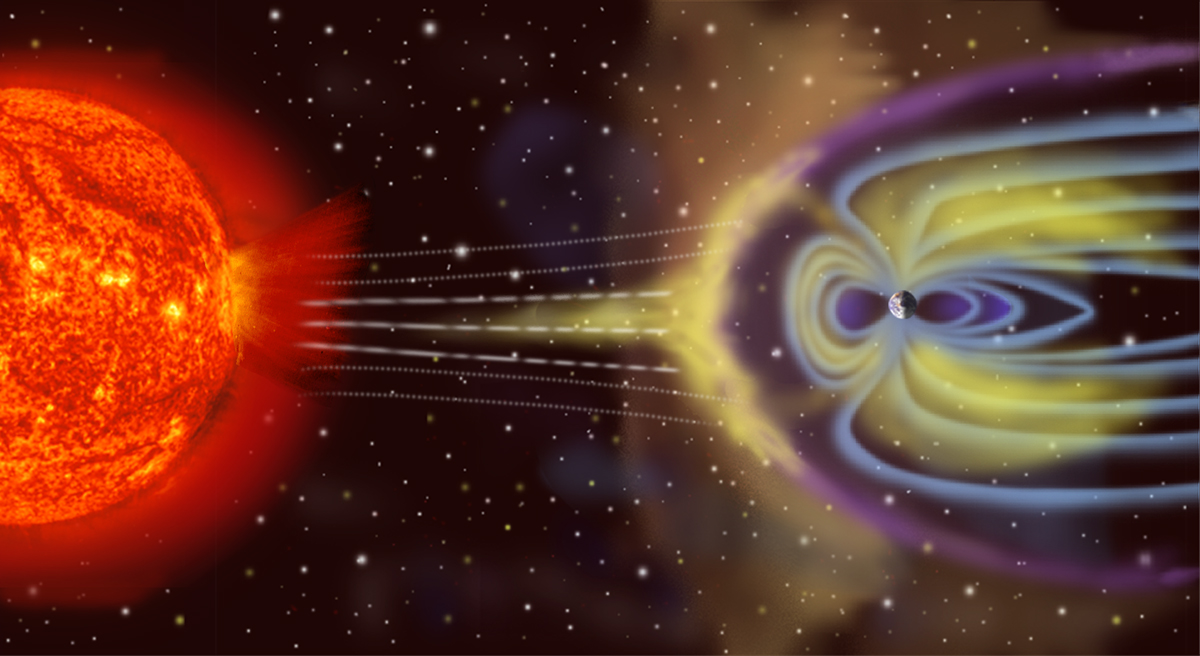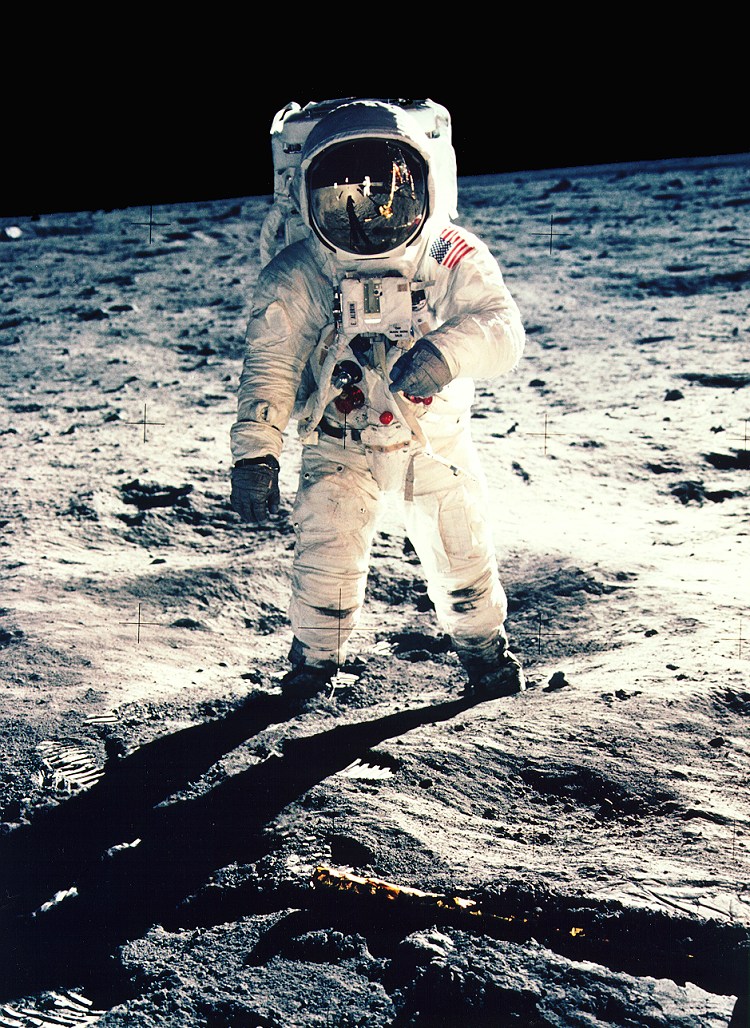Recent Content
The White House Office of Science and Technology Policy solicited ideas for "massless exploration and bootstrapping a solar system civilization". Here is the response I submitted.
Hello,
I appreciate the opportunity to provide my thoughts on establishing a solar system civilization, and "massless" approaches towards that goal. I am an aerospace engineer who has spent several years working on guidance and navigation of spacecraft in private industry and planning environmental & space weather satellite missions for NOAA. I've spent considerable time thinking about just these topics.
I think it is a mistake to associate one characteristic - "massless" - as being the sole key to the goal of establishing a solar system civilization. The Space Shuttle had the stated purpose of decreasing launch costs and opening access to space, but by fixating on "reusability", we sacrificed cost, reliability, and launch rate. It is better to open the question to "how do we establish a solar system civilization?" and let the smart people of the US and Earth propose specific solutions. "Massless" may play an important role, but it's by no means the only one.
That said, here are my thoughts on massless systems. One way to interpret it is to use spacecraft that don't need propellant. This way, you eliminate an entire logistics chain of mining, refining, transporting, and storing propellants. Invest in technologies like solar sails and space tethers. NASA's Space Technology Mission Directorate is chronically underfunded to pursue ideas like this, as evidenced by the recent cancellation of their Solar Sail Demonstration Mission (Sunjammer), and the lack of investment in tether development.
To truly achieve a solar system civilization, we need to recognize that "civilization" is mostly not NASA. Therefore, we need to do everything we can to encourage people and organizations other than NASA to go into space. NASA is helping do this now, by recognizing private industry's skill at launching payloads into space based for the most part on the massive commercial presence in geostationary orbit. Private industry passed the government on number of rocket launches, number of satellites, and money invested in space several years ago. So, NASA is purchasing commercial services - instead of buying rockets and spacecraft - to launch people and cargo to the International Space Station. Keep these programs fully funded, and those services will also be available for entrepreneurs like Bigelow Aerospace, who want to rent out private space stations in Earth orbit, and Virgin Galactic, who could transition from commercial suborbital human space flight to orbital flight. This follows the early model of commercial aviation, where the government signed airmail contracts so that private airplane operators could get established and start selling commercial services.
NASA can do more to help as well, by employing these private services to get crew, cargo, and spacecraft up to exploration vessels for exploring deeper in the solar system. Consider following crew and cargo with commercial service for heavy lift services, and private industry will develop, own, and operate their own heavy lift rockets of the same scale as the Saturn V and SLS. Industry can use these for big communication satellites, multiple big satellites, and private space stations. As private industry establishes a presence in Earth orbit, NASA's job of exploration the solar system will become much, much easier. The frontier will then be in space, instead of on the launch pad.
Not to be ignored is that loosely defined segment of society that is neither government nor private industry. This is the non-profit organizations, charities, hobbyists, artists, and artisans. Think about how to encourage these people doing what they are passionate about in space - not simply Earth-based enthusiasm for space. Like NASA, they can - with enough growth in private space industry - go along for the ride. But, I'm talking going themselves, like scientific institutions go on expeditions, and individuals climb mountains, delve into caves, and sail around the world. In the near term this would merely be robotic telepresence. The Planetary Society, for example, is launching a cubesat solar sail called Lightsail in 2016 that was funded by private donations. The Amateur Radio Satellite Corporation (AMSAT) has built and flown their own satellites since the dawn of the space age. Many universities build and fly small satellites. Every weekend in this country, amateur rocketeers fly big rockets they built in their homes, with propellant they mixed and cast themselves. People in the "maker culture" build their own 3D printers, CNC milling machines, robots, and UAVS. There is even a non-profit organization (Open Source Ecology) that is developing ~50 open source industrial machines that anyone can build and use to help them pursue their interests. Tap into this big pool of enthusiasm and talent now, because these are the people that will drive solar system civilization in the future.
That group I mentioned, Open Source Ecology, relates more directly to the goal of bootstrapping solar system civilization and the "massless" quality. Unless all the capabilities of Earth's industrial base are replicated in space, any space colonies will require mass from Earth. Open Source Ecology's purpose is to develop a set of 50 machines that can all build each other, and provide the basics of modern human civilization. This includes manufacturing, agricultural, transportation, and construction equipment. They are currently being designed for use on Earth, but an analog for space will be needed. The alternative is a substantial logistics chain from Earth. Consider talking to them about their approach and how it can be adapted to making space habitats, vessels, and colonies more self-sufficient.
Finally, there is the question of where to get resources in space. Asteroids are the most accessible (low gravity, and low delta-V to reach) and resource-rich. You can simply dock with an asteroid instead of landing on it. There are two private companies now pursuing the idea of asteroid mining. Rather than pre-select technologies and methods for working with asteroids, consider offering paid services for NASA's scientific and exploration goal, let the private bidders find solutions, and help grow another potential market. I would suggest a list of more important and challenging services like the delivery of:
- Samples of asteroid material
- Large bags of undifferentiated asteroid material to shield space stations
- Volatiles, like water
Thank you for taking the time to read this,
Ben Diedrich
I've wanted to save the world for as long as I've known there was one. Why? In my youth, I biked miles through the Washington woods, ran (sometimes on all fours) with sled dogs in the swamps, forests, and mountains of the Pacific Northwest, picked the top two inches off hundred-foot cedar trees, sailed a ninety-foot yacht throughout the Puget Sound, backpacked across the Olympic and Cascade mountains, explored a lava tube on Mount Saint Helens, and read a steady diet of science fiction and fantasy. I learned the science of atoms, Earth's organisms, galaxies, and the universe. I read about the beauty and horror of human history, as well as our technological marvels and follies that led us to cure diseases, fly through the air, land on the moon, create rudimentary thinking machines, and brought us to the brink of nuclear and environmental oblivion. Along the way I came to see reality, the universe, nature, etc., as amazing and beautiful, particularly my own little corner, the Earth. I see the whole Earth as home, and all of humanity and the other organisms as family. I'm not motivated by any abstract philosophy, theological dictate, or ideological zeal. I simply don't like seeing my home trashed, my family suffer with dreams deferred, and beauty soiled.
I recognize that most people have a more focused view of world, home, and family, whether by necessity or perspective. That's fine with me. Everywhere I look, I see people who care about themselves, family, friends, city, country, and yes, sometimes even the whole world. When you add up that concern each of us has for our own small corner of the universe, that is an enormous potential force to move our world in new and better directions.

World, home, and family
Does the world need saving? I would say "yes", no matter how you define "world" and "save". People are suffering from wars, despotic regimes, oppressive cultures, economics, and the fragility of our own bodies and minds. Species are going extinct. We are consuming beautiful places and filling them with our wastes. Asteroids, solar storms, supervolcanoes, climate change, and evolving viruses and bacteria are looming threats. I understand if those existential threats aren't foremost on your mind. There are far more personal threats from crime, health problems, and economic hard times. At any scale, there are changes for the better all of us can make to our "world."
Why bother trying saving the world if it's too hard? For many, simply keeping ourselves and our loved ones fed, housed, and secure is hard enough, let alone trying to build a better future. Some problems are so big that they seem impossible to solve. We've solved huge problems before and can again. While it's true many people are overcome by their problems, it's also true that many succeed against seemingly overwhelming odds and challenges to create better lives for themselves and their loved ones. It can be done. In many cases, people have faced similar problems before, and solved or at least dealt with them. Therein lies hope for all others that follow. On the global scale, we have faced many challenges and come through. Many of us grew up in the shadow of global nuclear war, which thankfully hasn't happened. Scientists discovered that chemicals used for refrigeration and aerosols, chlorofluorocarbons (CFCs), were destroying Earth's ultraviolet-protecting ozone layer, which led to international treaties phasing out these chemicals worldwide. From 1968 to 1972, twenty four human beings left the bounds of Earth to orbit the moon. Twelve walked on the moon's surface. Anything less than this feat is possible - as are many that exceed it. I know personally that something can be done about existential threats to humanity and the Earth. I spent nine years of my career planning a space mission to warn power grid operators and others of storms blowing off the sun so they can keep power flowing to our civilization.
Beyond "saving", there are many ways to make your world and life more amazing and beautiful through art, music, literature, science, exploration, and invention. These pursuits go hand in hand with saving the world. The solutions to many problems come from the passion people have pursue beauty and truth, and explore the possibilities of nature and technology. These pursuits bring people joy, and they are more free to follow them when not burdened by poverty, starvation, war, violence, disease, oppression, and the like. Add compassion and a desire to preserve beauty, and you have the pieces to solve the greatest problems.
Solving the problems of one's life and the world is all too often extremely difficult, with extreme effort, patience, and taking advantage of happenstance. How to make it easier for people to move the world in a direction that is better for all of us is another question.
This blog covers space, savingtheworld, philosophy




